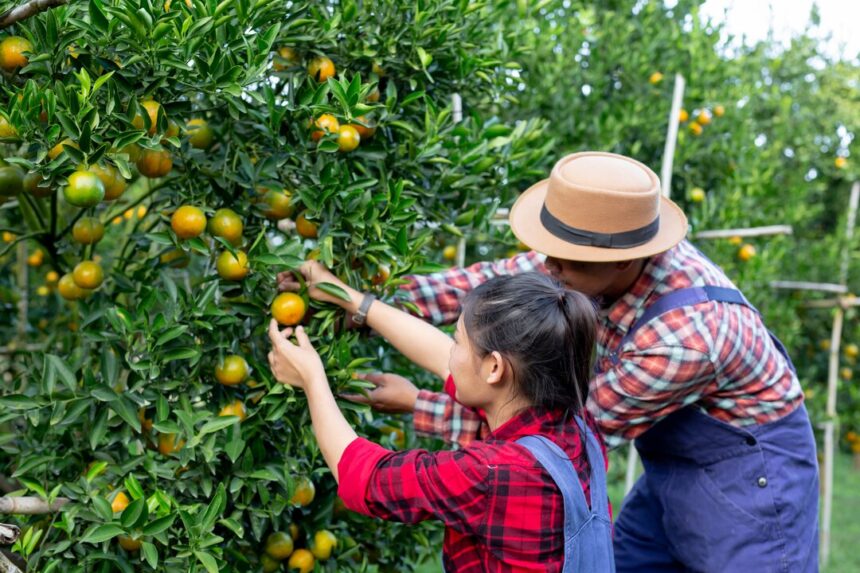Mpumalanga, located in the eastern part of South Africa, is renowned for its fertile soils, diverse climate, and abundant rainfall, making it an ideal region for agricultural production. With its varied topography ranging from highveld grasslands to lowveld savannahs, Mpumalanga offers a conducive environment for growing a wide range of crops. In this article, we’ll explore some of the most suitable crops for agriculture in Mpumalanga, highlighting their adaptability to the region’s climate and soil conditions, as well as their economic significance for local farmers.
- Maize (Corn):
Maize is one of the staple crops grown in Mpumalanga due to its adaptability to various soil types and favorable growing conditions. The province’s moderate temperatures and ample rainfall during the summer months provide an ideal environment for maize cultivation. Maize production plays a crucial role in Mpumalanga’s agricultural economy, providing food security and income for local farmers. - Citrus Fruits:
Mpumalanga is well-suited for citrus fruit cultivation, particularly oranges, lemons, and grapefruits. The province’s subtropical climate and fertile soils provide optimal conditions for citrus orchards to thrive. Citrus farming is a significant contributor to Mpumalanga’s economy, with the region being one of the leading citrus-producing areas in South Africa. - Avocado:
Avocado cultivation has gained popularity in Mpumalanga due to the province’s suitable climate and growing conditions. Avocado trees thrive in well-drained soils with good water retention, making them well-suited to the region’s diverse soil types. Avocado farming offers lucrative opportunities for small-scale and commercial farmers in Mpumalanga, with increasing demand both domestically and internationally. - Macadamia Nuts:
Mpumalanga is one of the primary macadamia nut-producing regions in South Africa, thanks to its subtropical climate and fertile soils. Macadamia trees require well-drained soil and regular rainfall, which are readily available in Mpumalanga. Macadamia farming provides a lucrative income source for farmers and contributes to the province’s export earnings. - Sugarcane:
Sugarcane cultivation is prominent in Mpumalanga, particularly in the low-lying areas with adequate water resources and warm temperatures. Sugarcane thrives in fertile soils with high organic content and sufficient moisture, making it well-suited to the region’s conditions. Sugarcane farming supports the local economy and contributes to Mpumalanga’s sugar industry. - Timber:
Mpumalanga’s extensive forests and woodlands provide ideal conditions for timber production, with pine and eucalyptus being the predominant species grown in the region. Timber farming is an essential component of Mpumalanga’s forestry sector, supplying raw materials for various industries such as construction, furniture manufacturing, and paper production. - Vegetables:
Vegetable farming is prevalent in Mpumalanga, with a wide variety of crops grown throughout the year. The province’s diverse climate and irrigation infrastructure support year-round vegetable production, including tomatoes, potatoes, cabbage, carrots, and onions. Vegetable farming provides opportunities for small-scale farmers to diversify their income and meet local market demands. - Livestock:
Livestock farming, including cattle, sheep, and goats, is an integral part of Mpumalanga’s agricultural sector. The province’s vast grasslands and abundant water resources support extensive grazing and ranching activities. Livestock farming contributes to food security, employment generation, and rural livelihoods in Mpumalanga. - Poultry:
Poultry farming, including chickens, ducks, and turkeys, is a lucrative agricultural enterprise in Mpumalanga. The province’s favorable climate and access to feed ingredients support the growth of the poultry industry. Poultry farming provides income opportunities for small-scale farmers and contributes to the supply of meat and eggs to local markets. - Sunflower:
Sunflower cultivation is widespread in Mpumalanga, particularly in the highveld regions with well-drained soils and adequate sunlight. Sunflowers are grown for their oil-rich seeds, which are used for cooking oil, animal feed, and biodiesel production. Sunflower farming offers economic benefits to farmers and plays a vital role in Mpumalanga’s agricultural diversity.
Mpumalanga’s diverse climate, fertile soils, and abundant natural resources create favorable conditions for agricultural production. The region’s farmers cultivate a wide range of crops, including maize, citrus fruits, avocados, macadamia nuts, sugarcane, timber, vegetables, livestock, poultry, and sunflowers, contributing to food security, rural livelihoods, and economic development. By harnessing the potential of Mpumalanga’s agricultural resources and adopting sustainable farming practices, farmers can optimize yields, enhance profitability, and promote environmental conservation for future generations.
Join 'Farmers Mag' WhatsApp Channel
Get the latest Farming news and tips delivered straight to your WhatsApp
CLICK HERE TO JOIN






